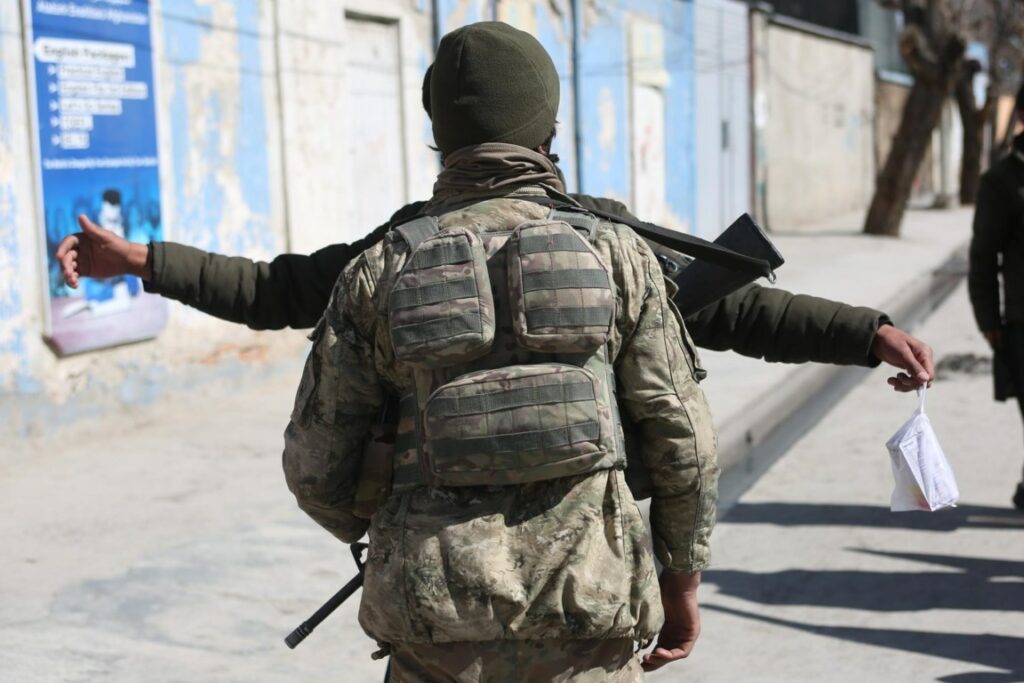What is believed to be the Taliban's first public execution since the group swept back into power in Afghanistan has drawn harsh critisicm from the European Union (EU) and United Nations (UN).
The UN human rights office (OHCHR) on Wednesday evening announced the first officially confirmed public execution since the hardline Islamist group and Afghanistan's de facto authorities, returned to power. Other public floggings have reportedly taken place, but this is the first time the Taliban have publicly acknowledged carrying out an execution.
A Taliban spokesperson said the man was accused of fatally stabbing another man five years ago, BBC News reports. He is said to have been shot by his victim's father in the southwestern province of Farah. It comes weeks after judges were instructed to fully enforce Sharia law.
"The public execution by the de facto authorities of a man in Afghanistan is deeply disturbing," said OHCHR's spokesperson Jeremy Laurence. "It is believed to be the first public execution since the Taliban takeover in August 2021, taking place in the presence of local residents and some of the most senior members of the de facto authorities."
An ineffective deterrent
In his statement, Laurence reiterated the fact that public executions are in violation of the right to life protected under the International Covenant on Civil and Political Rights, to which Afghanistan is a State party. "They constitute a form of cruel, inhuman or degrading treatment or punishment."
He stressed that the death penalty is "incompatible with fundamental tenets of human rights" and urged the Taliban to establish an "immediate moratorium on any further executions, and act swiftly to prohibit the use of the death penalty in its entirety." This message was echoed by the UN Assistance Mission in Afghanistan (UNAMA) and the European External Action Service (EEAS).
"The European Union condemns today’s public execution of a man in Farah, Afghanistan, in the strongest terms," the body's spokesperson said.
"As a matter of principle, the EU strongly opposes the death penalty at all times and in all circumstances. It is a cruel and inhumane punishment which fails to act as a deterrent to crime and represents an unacceptable denial of human dignity and integrity."
A return to darker days
When the Taliban seized power again in August 2021, it initially made promises that the rights of Afghans would be respected and that dissidents of the state would not be punished. However, it soon became clear that the draconian system of governance of the 1990s emirate would be restored.
A UN report published this summer showed that the Taliban have swiftly reinstated many of their harshest policies and have constantly violated human rights: peaceful protests have been met with violence, women's rights have been suppressed and extrajudicial killings and disappearances have been used to instil fear in the population.
Related News
- Iran hangs anti-government protestor in first official execution
- 'Shocking footage' shows young Syrian refugee being shot by Bulgarian police on EU border
It also pointed out that the erosion of women's rights is one of the most notable human rights issues of the past year. "The Taliban is dismantling the human rights gains of the last twenty years," a briefing published by Amnesty International noted.
Several human rights organisations stressed that "the Taliban have clearly demonstrated that they are not serious about protecting or respecting human rights." This was confirmed last month when the Taliban's supreme leader Haibatullah Akhundzada ordered judges to impose punishments that could include public executions, public amputations and stoning.

